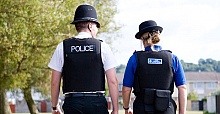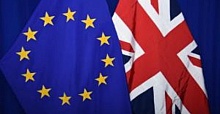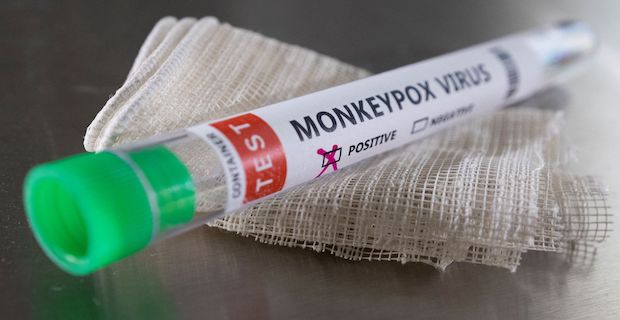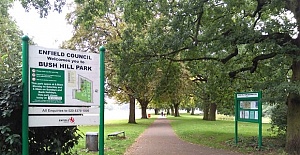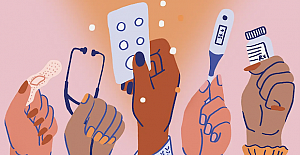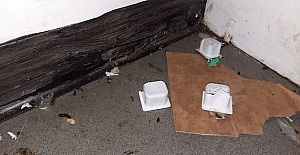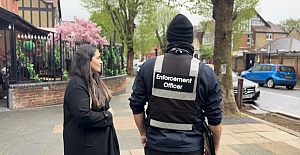Monkeypox to be listed as notifiable disease in UK. LONDONIt means doctors will have to notify their local council if they suspect a patient has monkeypox and labs will have to notify the UKHSA if they identify the virus in a lab sample."Rapid diagnosis and reporting is the key to interrupting transmission and containing any further spread of Monkeypox. This new legislation will support us and our health partners to swiftly identify, treat and control the disease,” said Wendi Shepherd, the monkeypox incident director at the UKHSA. "It also supports us with the swift collection and analysis of data which enables us to detect possible outbreaks of the disease and trace close contacts rapidly, whilst offering vaccinations where appropriate to limit onward transmission."The UKHSA has insisted that the risk of monkeypox to the general population “remains low” because the virus does not spread easily and only through close physical contact. There were 302 confirmed cases Monday in the UK.
Monkeypox designated a notifiable disease, UKHSA says
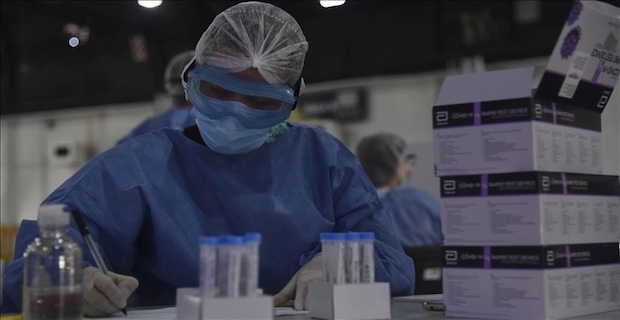
The new legislation means all doctors in England are required to notify their local council or local Health Protection Team (HPT) if they suspect a patient has monkeypox.Monkeypox is to be listed as a notifiable disease in law from 8 June, the UK Health Security Agency has said.It means all doctors in England are required to notify their local council or local Health Protection Team (HPT) if they suspect a patient has monkeypox.Labs must also notify the UKHSA if the virus is identified in a laboratory sample.It comes after the total number of confirmed monkeypox cases in the UK reached 302 on Monday.Wendi Shepherd, Monkeypox incident director at UKHSA, said: "Rapid diagnosis and reporting is the key to interrupting transmission and containing any further spread of Monkeypox. This new legislation will support us and our health partners to swiftly identify, treat and control the disease."It also supports us with the swift collection and analysis of data which enables us to detect possible outbreaks of the disease and trace close contacts rapidly, whilst offering vaccinations where appropriate to limit onward transmission."Prof David Heymann, Professor of Infectious Disease Epidemiology, London School of Hygiene & Tropical Medicine (LSHTM), said that making monkeypox a notifiable disease "suggests a desire to be sure to have reporting from all sectors - public and private - and all parts of the NHS".He added: "It suggests that the government wants to focus surveillance on the entire population - not only on the risk groups identified so far."This will permit clear identification of all risk groups and help better understand the epidemiology and extent of spread."The UKHSA has insisted the risk to the general population "remains low" because the virus, which is transmitted through close physical contact, does not spread easily.It can live on surfaces such as bedsheets or towels, however.People are advised to look out for rashes that are unusual to them or an ulceration.


 Margaret Greer has been sworn in as the new Mayor of Enfield
Margaret Greer has been sworn in as the new Mayor of Enfield Prime Minister Keir Starmer's 2025 Easter message
Prime Minister Keir Starmer's 2025 Easter message After Nesil Caliskan a by-election will be held in Jubilee ward in Enfield
After Nesil Caliskan a by-election will be held in Jubilee ward in Enfield Publishing the analysis, Labour’s Cllr Ergin Erbil said Everybody in Enfield deserves basic rights
Publishing the analysis, Labour’s Cllr Ergin Erbil said Everybody in Enfield deserves basic rights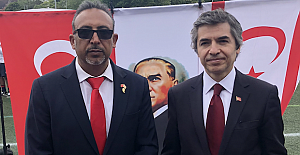 Great respect for Ataturk and enthusiastic youth celebration in England
Great respect for Ataturk and enthusiastic youth celebration in England UK AMBASSADOR TO TURKEY VISITS FETHIYE
UK AMBASSADOR TO TURKEY VISITS FETHIYE Journalists from Europe held the Turkish Media Workshop in Skopje
Journalists from Europe held the Turkish Media Workshop in Skopje The European Union called on Turkey to uphold democratic values
The European Union called on Turkey to uphold democratic values Brennan Johnson’s first-half strike seals London side’s win
Brennan Johnson’s first-half strike seals London side’s win The 'Prince of Paris' has impressed in his first EuroLeague season
The 'Prince of Paris' has impressed in his first EuroLeague season Saran Media And Euroleague Basketball Extend Media Rights Partnership for Four More Years
Saran Media And Euroleague Basketball Extend Media Rights Partnership for Four More Years Will Rangers be Jose Mourinho’s next victim?
Will Rangers be Jose Mourinho’s next victim?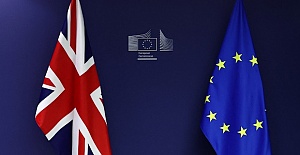 UK, EU reach landmark agreement on food, fishing ahead of London summit
UK, EU reach landmark agreement on food, fishing ahead of London summit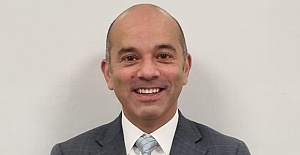 Perry Scott to become Enfield Council Chief Executive
Perry Scott to become Enfield Council Chief Executive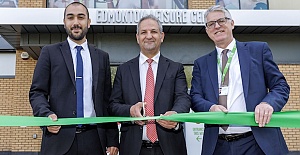 Residents welcomed back to Edmonton Leisure Centre
Residents welcomed back to Edmonton Leisure Centre Barclays has become the biggest UK lender so far to cut mortgage rates
Barclays has become the biggest UK lender so far to cut mortgage rates

